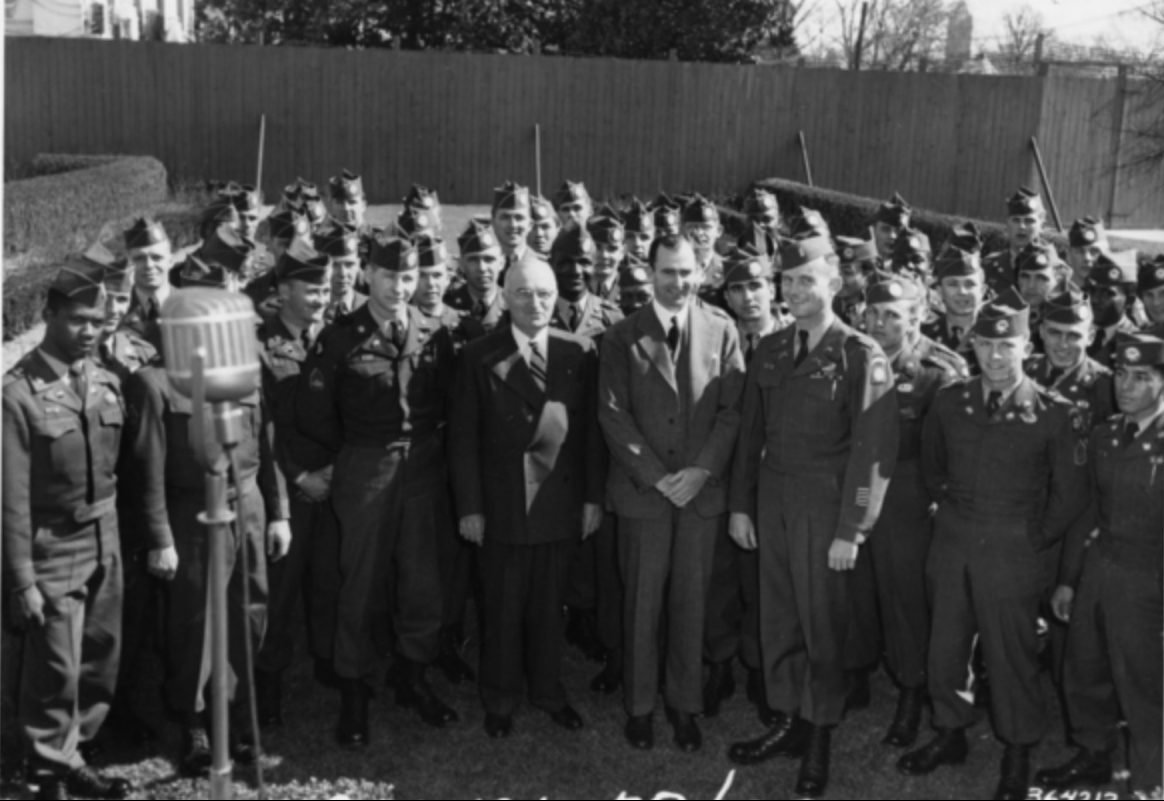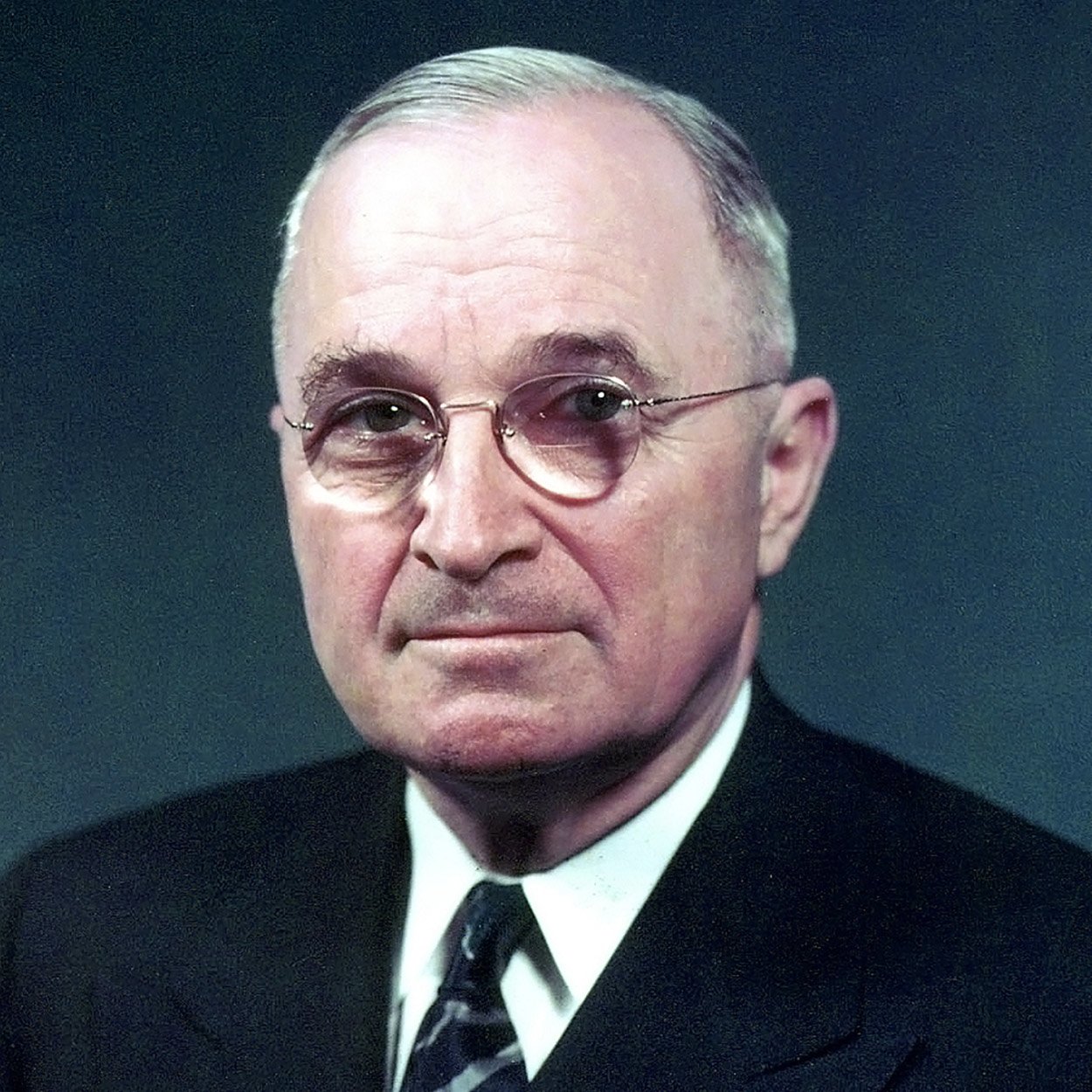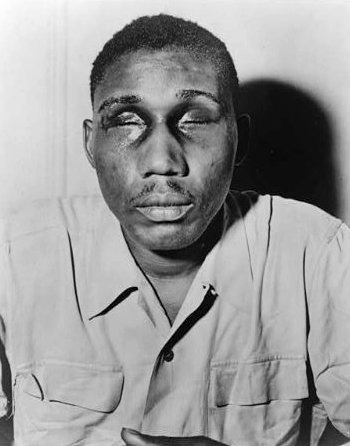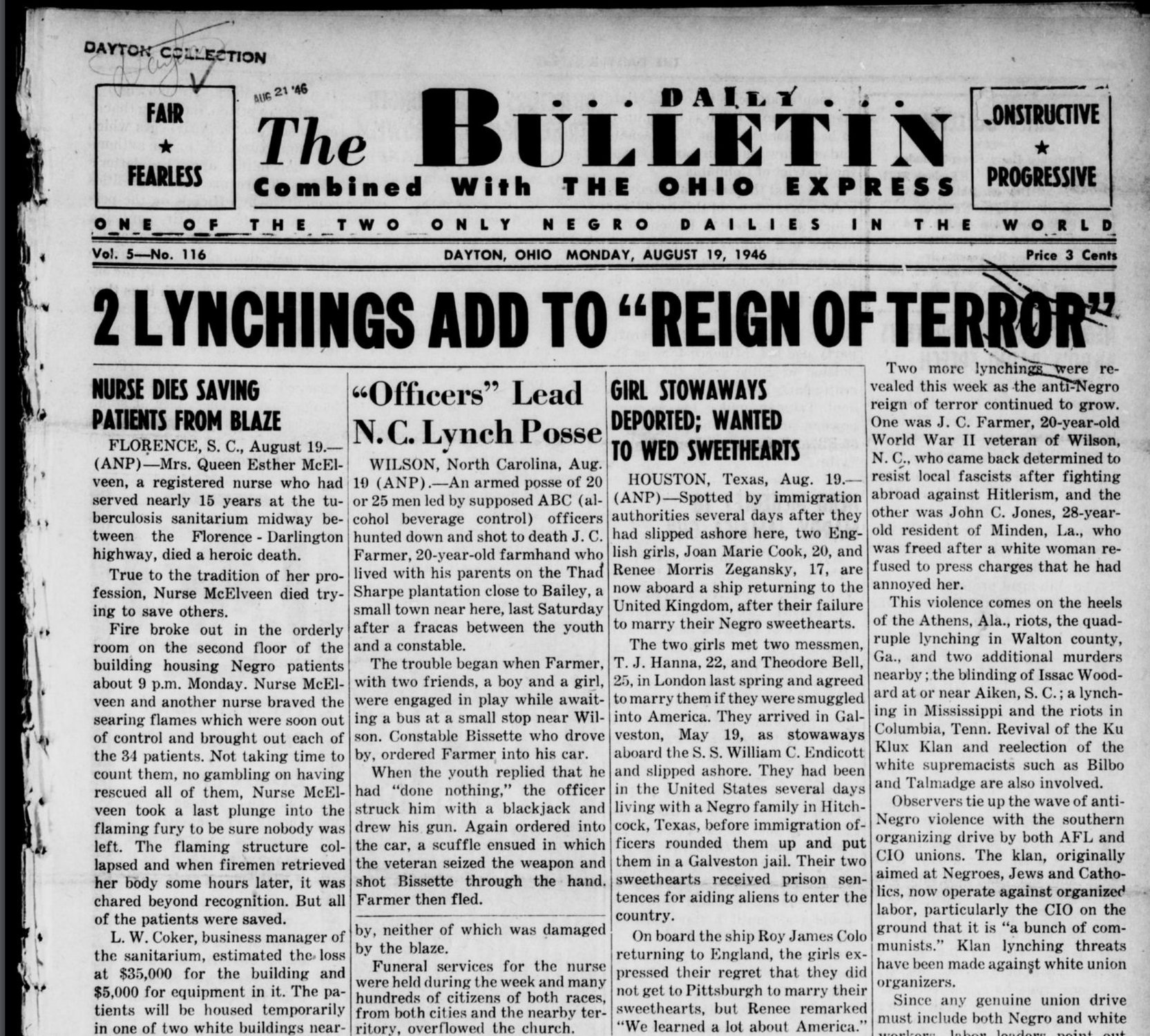President Truman Believed in Segregation — Until Black World War II Veterans Started Getting Murdered

The 82nd Airborne, recently integrated, stands for a photo in the Rose Garden of the White House in 1948. Photo courtesy of the US National Archives.
President Harry S. Truman signed Executive Order 9981 on July 26, 1948, desegregating the armed forces of the United States. The order to desegregate the military — today viewed as a cornerstone of civil rights progress — represented a massive change of heart for Truman, who believed in segregation for much of his early life and was raised in a family deeply connected to the post-Civil War South.
But after World War II, a series of lynchings of war veterans across the South convinced him that the country needed the change.
Truman grew up in Missouri, which reflected the Jim Crow-dominated South. The Civil War was very much in the living memory of most adults. That included his grandparents, former slave owners who remembered the Emancipation Proclamation and cursed the name of Abraham Lincoln to young Truman. His mother, who lived into his presidency, was also a lifelong Confederate supporter.
That upbringing rubbed off on Truman. In 1911, when he was 27, he wrote a letter to his future wife, Bess, saying he thought “the Lord made a white man from dust, a nigger from mud, then He threw up what was left and it came down a Chinaman. […] Negroes ought to be in Africa, yellow men in Asia and white men in Europe and America.”

But as president, Truman was stunned by a wave of violent attacks on WWII veterans returning from war that took hold in the South. Two significant cases struck Truman as particularly unsettling: Isaac Woodard and the Moore’s Ford lynchings in Georgia.
Isaac Woodard captured the nation’s attention in 1946 when he was assaulted and left permanently blind by white police officers on the day he received his honorable discharge. Carrying his discharge papers and in uniform, he boarded a bus in Georgia and rode to South Carolina to rejoin his wife. He had a disagreement with the driver, who reported Woodard for “disorderly conduct” to local police in Batesburg, South Carolina.
Woodard was pulled off the bus, and the police chief, Lynwood Shull, beat him across the face until Woodard was unconscious, blinding him for the rest of his life. The police left him at a hospital and would deny all allegations.

The Moore’s Ford lynchings in Georgia generated widespread national outrage and captured the president’s attention.
George W. Dorsey, a WWII veteran; his wife, Mae Murray Dorsey; and Roger and Dorothy Malcom were all sharecroppers for local farmer J. Loy Harrison after the war and were lynched together in 1946. Roger Malcom had been arrested for stabbing his landlord, a white man, on July 11, and the other three had gone with Harrison to bail Malcom out. As they drove home, a mob forced the car to stop near Moore’s Ford Bridge outside Monroe, Georgia. The four Black passengers were forced out of the car and shot.
Dorothy Malcom was seven months pregnant.

Truman asked the FBI to investigate, but despite 100 witnesses testifying to a grand jury, no charges were brought.
Soon Truman launched a series of initiatives aimed at passing civil rights legislation, such as anti-lynching laws. But the laws never passed, killed off by Southern legislators.
The legislative defeats made Truman consider moves he could make unilaterally as president. To officially desegregate the military was one such move.
Truman addressed Congress on Feb. 2, 1948, saying, “We cannot be satisfied until all our people have equal opportunities for jobs, for homes, for education, for health, and for political expression, and until all our people have equal protection under the law.”
He signed the order to desegregate the US military five months later.
Read Next:

Lauren Coontz is a former staff writer for Coffee or Die Magazine. Beaches are preferred, but Lauren calls the Rocky Mountains of Utah home. You can usually find her in an art museum, at an archaeology site, or checking out local nightlife like drag shows and cocktail bars (gin is key). A student of history, Lauren is an Army veteran who worked all over the world and loves to travel to see the old stuff the history books only give a sentence to. She likes medium roast coffee and sometimes, like a sinner, adds sweet cream to it.
BRCC and Bad Moon Print Press team up for an exclusive, limited-edition T-shirt design!
BRCC partners with Team Room Design for an exclusive T-shirt release!
Thirty Seconds Out has partnered with BRCC for an exclusive shirt design invoking the God of Winter.
Lucas O'Hara of Grizzly Forge has teamed up with BRCC for a badass, exclusive Shirt Club T-shirt design featuring his most popular knife and tiomahawk.
Coffee or Die sits down with one of the graphic designers behind Black Rifle Coffee's signature look and vibe.
Biden will award the Medal of Honor to a Vietnam War Army helicopter pilot who risked his life to save a reconnaissance team from almost certain death.
Ever wonder how much Jack Mandaville would f*ck sh*t up if he went back in time? The American Revolution didn't even see him coming.
A nearly 200-year-old West Point time capsule that at first appeared to yield little more than dust contains hidden treasure, the US Military Academy said.












